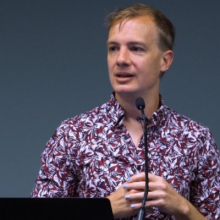The Workshop on Global AI Cultures to be held as part of ICLR 2024 on May 11. This is a cross-disciplinary workshop with experts in AI/ML and social sciences and humanities to develop a research agenda towards building more globally inclusive AI.
Please use the following link to navigate to the workshop page on the ICLR website: https://iclr.cc/virtual/2024/workshop/20576.
Description
Building globally-inclusive artificial intelligence systems that encodes and respects cultural sensibilities as well as performs well for users across cultural contexts, is an important goal as we deploy AI products globally. However existing AI evaluation, design and deployment practices are not oriented towards a diversity of global cultures and we do not recognize fully the cultural values that AI amplifies. If this relationship between AI and global cultures is not examined we inadvertently could be universalizing western centered AI and create unforeseen impacts on global cultural production, values and consumption. This workshop aims to develop a shared vocabulary for contending with the cultural impacts of AI , the cultural gaps of AI and the cultural values of AI by putting into conversation AI researchers considering the technical nuances of generative AI with scholars from the humanities and social sciences that have long thought about the social and cultural impacts of new technologies.
Themes
This workshop will encourage field building on deepening our understanding for how we can build and deploy globally inclusive AI and how we can responsibly encode cultural knowledge into our technologies. It will include discussions about:
- Conceptual and Theoretical Foundations for Cultural Inclusion in AI: What does global inclusion mean in the context of AI and what are the possibilities and challenges of building culturally inclusive AI models?
- Scalable Cultural Representation Evaluations: How do we build evaluation and development pipelines that can test cross-cultural performance via cultural metrics such as representation, quality, impact, and inclusion at scale?
- Culturally-Rich Training Datasets: What are the features of a culturally representative training dataset and what processes and conditions are needed in order to create or curate such training data?
- Methods to study cultural values of generativeAI: How can we recognize and account for the different cultural values that are embedded in our AI pipelines? How do we bring our cultures of development in sync with our cultures of deployment?
- User Interactions in Support of Cultural Inclusion: Are there creative strategies that can reparatively promote the inclusion of subjugated cultural values through UI, deployment, or public education/advocacy?
- Cultural impacts of Generative AI: How can we understand immediate and longer-term impacts of these technologies on the culture industries? How does AI support or challenge support existing dynamics in the culture industries? Are there existing norms or principles in non-AI systems of content creation and distribution?
Panels
Invited Keynote Panel: Cultural Inclusion in Generative AI: Possibilities and Tensions
Maya Indira Ganesh, University of Cambridge

Sara Hooker, Cohere for AI

Irene Solaiman, Huggingface

Hal Daumé III, University of Maryland and Microsoft Research NYC

Schedule
Saturday, May 11, 2024
| Time (CEST) | |
|---|---|
| 10:00 - 10:15 | Opening provocation from organizers |
| 10:15 - 11:15 | Paper Panel 1 Moderator: Fernando Diaz |
| Cultural Alignment in Large Language Models: An Explanatory Analysis Based on Hofstede’s Cultural Dimensions Reem Masoud, Ziquan Liu, Martin Ferianc, Philip Colin Treleaven, Miguel R. D. Rodrigues AI Literacy in Low-Resource Languages: Insights from creating AI in Yoruba videos Wuraola Oyewusi Fears about Artificial Intelligence across 20 Countries and 6 Domains of Application Mengchen Dong, Jane Rebecca Conway, Jean-François Bonnefon, Azim Shariff, Iyad Rahwan | |
| 11:15 - 12:15 | Paper Panel 2 Moderator: Fernando Diaz |
| Vision-Language models under Cultural and Inclusive Considerations Antonia Karamolegkou, Phillip Rust, Yong Cao, Ruixiang Cui, Daniel Hershcovich, Anders Søgaard Multi-FAct: Assessing Multilingual LLMs’ Multi-Regional Knowledge using FActScore Sheikh Shafayat, Eunsu Kim, Juhyun Oh, Alice Oh WorldBench: Quantifying Geographic Disparities in LLM Factual Recall Mazda Moayeri, Elham Tabassi, Soheil Feizi | |
| 12:15 - 13:15 | Lunch |
| 13:15 - 15:00 | Provocations & Sharing Concepts in AI & Culture Moderator: Rida Qadri |
| The Silent Curriculum: How Does LLM Monoculture Shape Educational Content and Its Accessibility Aman Priyanshu, Supriti Vijay K-Datasets: The More the Merrier? Chaewon Yun, Joonha Jeon, Koh Achim Making Geographic Space Explicit in Probing Multimodal Large Language Models for Cultural Subjects Zilong Liu, Krzysztof Janowicz, Kitty Currier On generated vs collected data Levent Sagun, Kartik Ahuja, Elvis Dohmatob, Julia Kempe AI for a Multicultural Future: Initial Empirical Findings and a Cultural Psychological Perspective On AI Chunchen Xu, Xiao Ge, Cinoo Lee Complicating the “Global South” in AI Ethics Evani Radiya-Dixit, Angele Christin A global AI community requires language-diverse publishing Haley Lepp, Parth Sarin Cross-Disciplinary Discussion Kate Miltner, Moira Weigel, Kanta Dihal | |
| 15:00 - 15:30 | Coffee Break |
| 15:30 - 16:45 | Invited Keynote Panel: Cultural Inclusion in Generative AI: Possibilities and Tensions Moderator: Arjun Subramonian |
| Maya Indira Ganesh, Sara Hooker, Irene Solaiman, Hal Daumé III, Mary L. Gray | |
| 16:45 - 17:00 | Closing |
Accepted Papers
- Cultural Alignment in Large Language Models: An Explanatory Analysis Based on Hofstede’s Cultural Dimensions, Reem Masoud, Ziquan Liu, Martin Ferianc, Philip Colin Treleaven, Miguel R. D. Rodrigues
- AI Literacy in Low-Resource Languages: Insights from creating AI in Yoruba videos, Wuraola Oyewusi
- Fears about Artificial Intelligence across 20 Countries and 6 Domains of Application, Mengchen Dong, Jane Rebecca Conway, Jean-François Bonnefon, Azim Shariff, Iyad Rahwan
- Vision-Language models under Cultural and Inclusive Considerations, Antonia Karamolegkou, Phillip Rust, Yong Cao, Ruixiang Cui, Daniel Hershcovich, Anders Søgaard
- Multi-FAct: Assessing Multilingual LLMs’ Multi-Regional Knowledge using FActScore, Sheikh Shafayat, Eunsu Kim, Juhyun Oh, Alice Oh
- WorldBench: Quantifying Geographic Disparities in LLM Factual Recall, Mazda Moayeri, Elham Tabassi, Soheil Feizi
Accepted Provocations
- The Silent Curriculum: How Does LLM Monoculture Shape Educational Content and Its Accessibility, Aman Priyanshu, Supriti Vijay
- K-Datasets: The More the Merrier?, Chaewon Yun, Joonha Jeon, Koh Achim
- Making Geographic Space Explicit in Probing Multimodal Large Language Models for Cultural Subjects, Zilong Liu, Krzysztof Janowicz, Kitty Currier
- On generated vs collected data, Levent Sagun, Kartik Ahuja, Elvis Dohmatob, Julia Kempe
- AI for a Multicultural Future: Initial Empirical Findings and a Cultural Psychological Perspective On AI, Chunchen Xu, Xiao Ge, Cinoo Lee
- Complicating the “Global South” in AI Ethics, Evani Radiya-Dixit, Angele Christin
- A global AI community requires language-diverse publishing, Haley Lepp, Parth Sarin
Organizers
- Rida Qadri (Google)
- Fernando Diaz (Carnegie Mellon University)
- Arjun Subramonian (University of California, Los Angeles)
- Sunipa Dev (Google)
- Georgina Emma Born (Princeton University)
- Mary L. Gray (Microsoft)
- Jessica Quaye (Harvard University)
- Rachel Bergmann (Stanford University)
Call for Papers/Submission Portal
The CFP and submission portal can be found here.
Dates
All registered participants of ICLR 2024 can attend the workshop. If you have concerns about registration cost but would like to attend the workshop, please let us know at: globalaicultures@gmail.com.
For questions please get in touch with us at: globalaicultures@gmail.com.
Submission Deadline: February 27, 2024 AoE
Acceptance Notification: March 3, 2024
Workshop Date: May 11, 2024